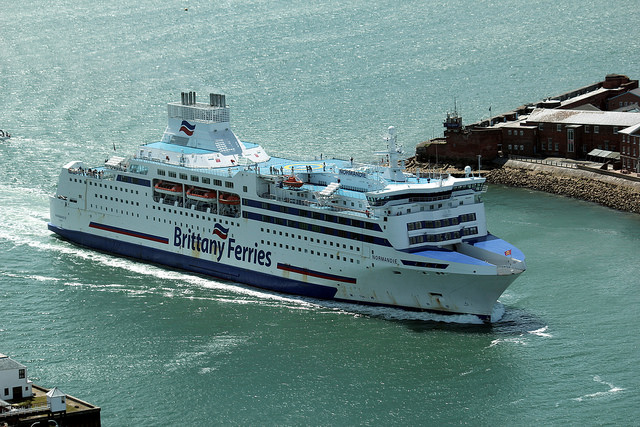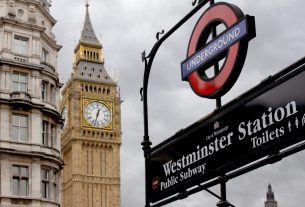The government is spending more than £100m on chartering ferries as a precaution in the event that it leaves the EU in March without a Brexit deal.
French, British and Danish operators have been handed contracts worth a total of almost £108m in an attempt to avoid congestion at Dover after a no-deal departure.
The extra ferries would move almost 4,000 lorries a week in and out of the UK via other ports, such as Portsmouth and Plymouth, ministers said.
The Department for Transport (DfT) said the contracts were a contingency that offered ‘significant extra capacity’ in the event of a hard Brexit.
But a spokesman said the government’s main priority was still to agree a deal with the EU that was acceptable to the UK Parliament.
Prime Minister Theresa May’s proposed Brexit deal will be voted on by MPs early in January, but she is predicted to be facing a defeat.
That raises the prospect of the UK leaving the EU on March 29 next year without a deal and the Government has recently stepped up its planning for that eventuality.
The DfT spokesman said the contracts were ‘a small but important element’ of that planning and said the urgency of the situation meant they were not put out to tender.
Increased border checks by EU countries after a hard Brexit could delay the delivery of ‘critical goods’ and disrupt the UK economy and Kent’s road network, said the DfT.
Liberal Democrat leader Sir Vince Cable said the decision was ‘complete madness’ as the government has the power to stop a no-deal Brexit at any time.
He added: “The fact that this money is predominantly going to European companies is nothing short of ironic, reducing Britain to a laughing stock on the global stage.”
The contracts were awarded to three operators:
- £46.6m to French company Brittany Ferries.
- £47.3m to Danish firm DFDS.
- £13.8m to British company Seaborne Freight.
The operators would extend their roll-on, roll-off services across the Channel, adding 500,000 tonnes of capacity a month and increasing ferry traffic by 10 per cent.
Brittany Ferries will increase weekly capacity by 50 per cent, adding 19 return sailings on three routes – Roscoff to Plymouth, Cherbourg to Poole and Le Havre to Portsmouth.




